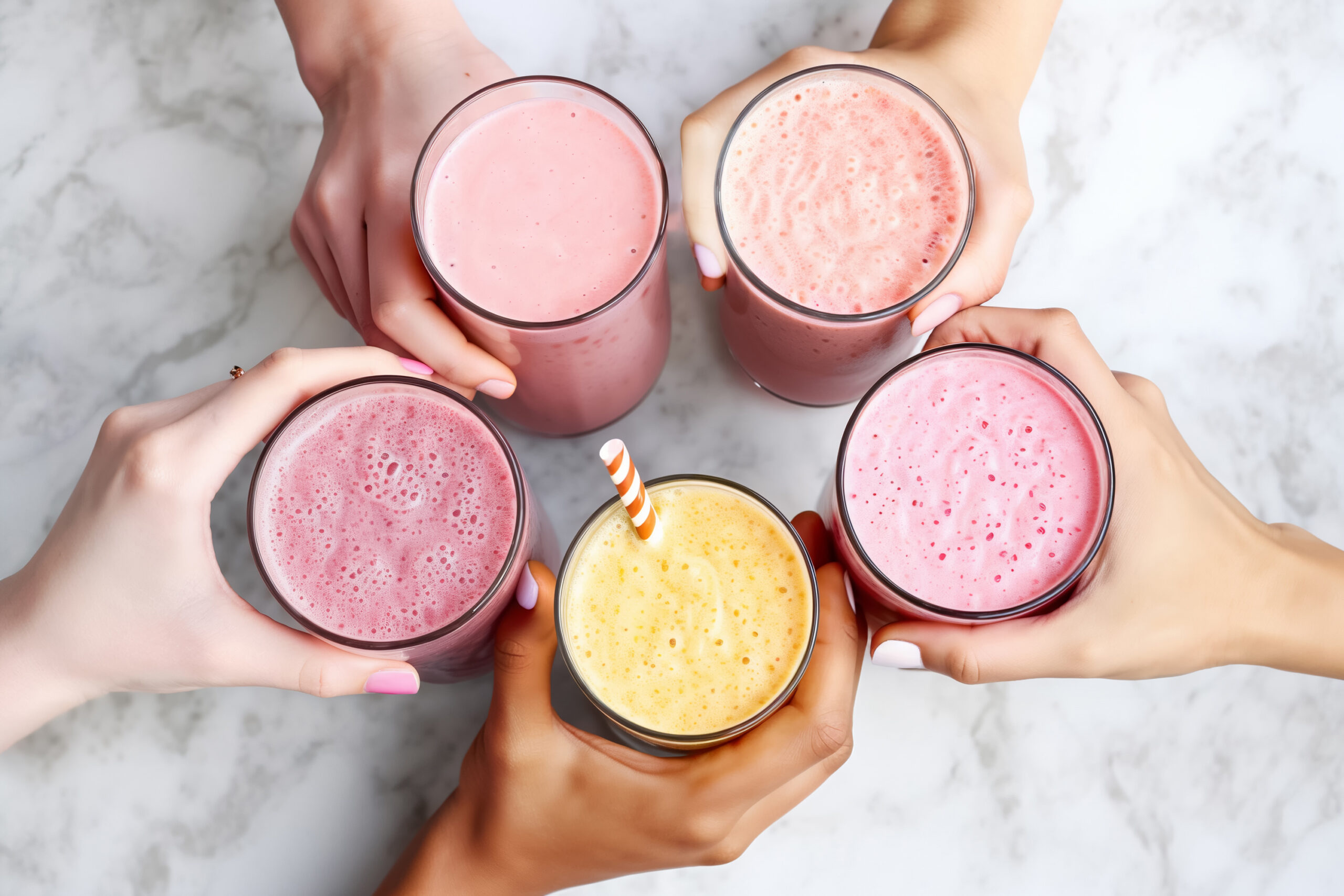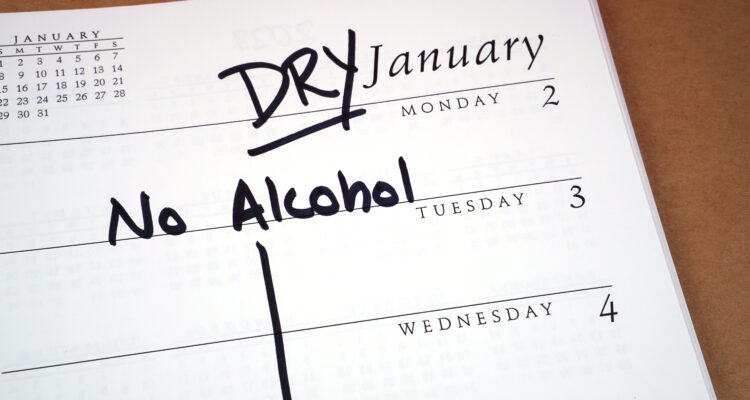As the new year approaches, many of us find ourselves making resolutions for the future. One of the most popular is giving up alcohol after the weeks of Christmas indulgence. You may have heard of ‘Dry January’ This means cutting out alcohol for the 31 days of January.
It’s a journey of self-discovery, health, and mental clarity that offers a refreshing start to the year. So here are 5 benefits of trying Dry January:
1. The Health Benefits:
Dry January may provide a lot of health benefits. [1] Your body will potentially thank you, as:
- Alcohol can contain a lot of calories, which may impact your weight.
- Excessive alcohol consumption can weaken your heart and shrink your arteries. This may increase your blood pressure and can lead to blood clots and strokes.
- Alcohol can put your liver at risk. When the liver has to process too much alcohol it can become fatty and scarred.
- Regularly drinking too much alcohol may make you experience gut problems. Effects could include nausea, vomiting and ulcers.
- Drinking alcohol has the ability to affect the quality of your sleep. This is because drinking can disrupt your sleep cycle, making you feel tired and sluggish.
2. Clarity of Mind and Mental Wellness:
Some studies show alcohol has a significant impact on our mental health. Alcohol is a depressant, which means it slows down your brain activity. It can boost dopamine and serotonin, (feel good chemicals) but when the effect wears off a crash occurs, and you lack those happy chemicals. [2] Some people call this ‘the beer blues.’
When you’re stressed, it can be tempting to reach for a beer or wine. However, drinking alcohol can interfere with your sleep, making stress harder to deal with. Alcohol’s effect on the brain can lead to feelings of depression, aggression, anger, anxiety – or stress.[3]
By participating in Dry January, you could experience increased mental clarity and emotional stability. Breaking free from the routine of reaching for a drink when things get tough and finding another stress outlet can be a powerful reset for your mental well-being.

3. Social Connections Beyond Cocktails:
A common worry about Dry January is feeling ‘boring’ or missing out on social events involving drink.
However, this challenge means you can explore activities that don’t revolve around alcohol. From coffee dates and outdoor adventures to game nights and fitness classes, Dry January encourages you to build and strengthen connections with your friends and family.
4. Discovering New Hobbies and Passions:
With the extra time and energy that can accompany a break from alcohol, you might find yourself exploring new hobbies or forgotten passions. Whether it’s painting, writing, learning a musical instrument, or a new fitness routine – Dry January can be the perfect chance to use the time you’d be hungover on personal growth and self-discovery.

5. Overcoming Challenges and Building Resilience:
Participating in Dry January is not always a walk in the park. It might present challenges, both internal and external. However, successfully navigating this month of abstaining cultivates a sense of resilience and self-discipline. If you can complete Dry January, what else can you achieve?
So, raise a glass of sparkling grape juice and toast to the empowering journey that is Dry January!
Warning: Suddenly stopping alcohol can be life-threatening for those who are clinically dependent. If you stop drinking and have symptoms like seizures, shaking, hallucinations, depression, anxiety, or insomnia during sobriety, you may be clinically dependent. Avoid abruptly quitting; instead, seek assistance from a GP or local alcohol service to safely manage and reduce your drinking. Find out more here.
[1] https://www.drinkaware.co.uk/facts/health-effects-of-alcohol/general-health-effects/how-alcohol-affects-your-body
[2] https://integrisok.com/resources/on-your-health/2022/december/is-alcohol-a-depressant
[3] https://www.drinkaware.co.uk/facts/health-effects-of-alcohol/mental-health/alcohol-and-stress
Want to learn more about mental health? Check out our blog on Seasonal Affective Disorder (SAD).
P.S. Did you know we offer car insurance? Get a quote today!



